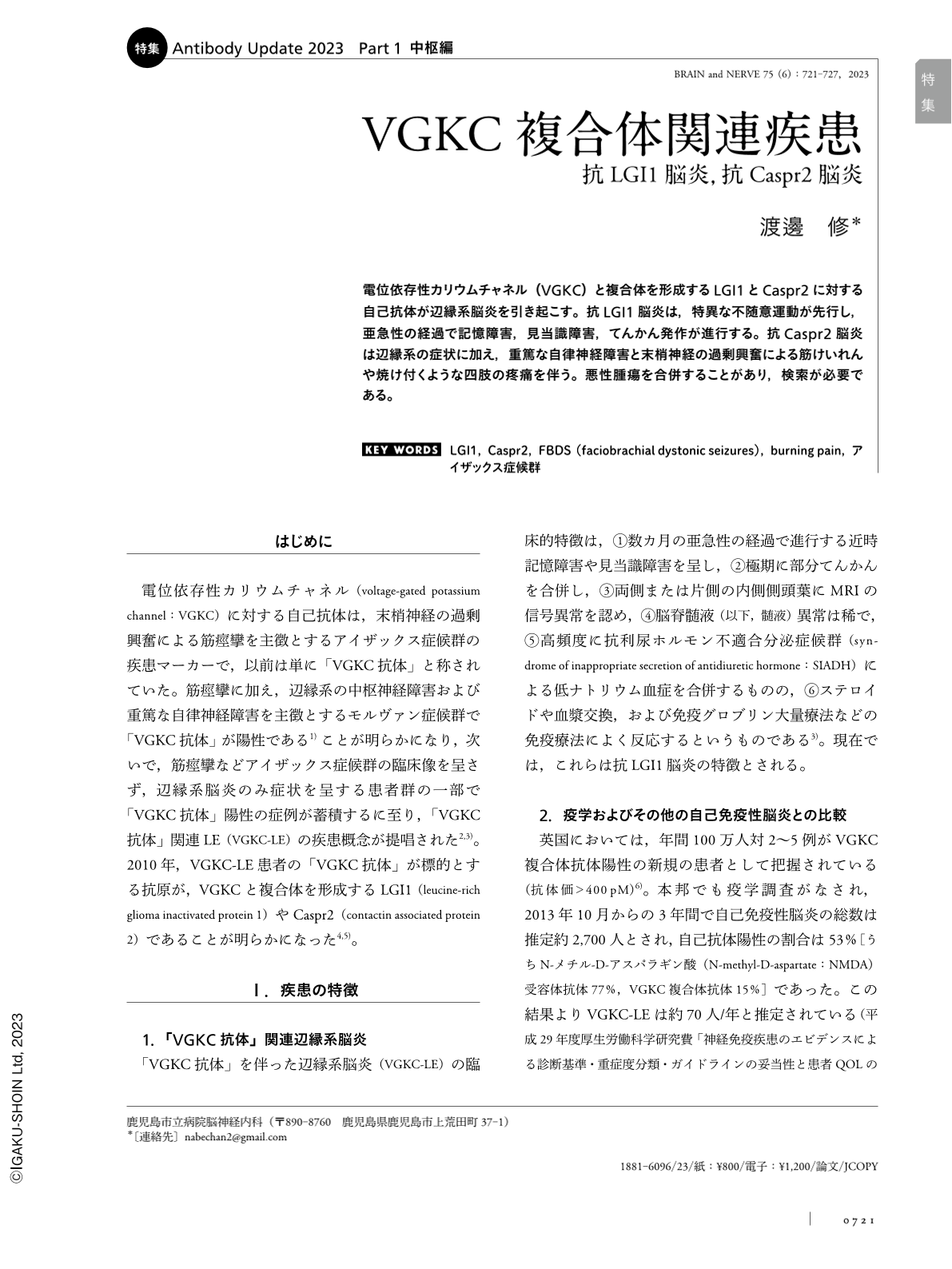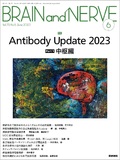Japanese
English
- 有料閲覧
- Abstract 文献概要
- 1ページ目 Look Inside
- 参考文献 Reference
電位依存性カリウムチャネル(VGKC)と複合体を形成するLGI1とCaspr2に対する自己抗体が辺縁系脳炎を引き起こす。抗LGI1脳炎は,特異な不随意運動が先行し,亜急性の経過で記憶障害,見当識障害,てんかん発作が進行する。抗Caspr2脳炎は辺縁系の症状に加え,重篤な自律神経障害と末梢神経の過剰興奮による筋けいれんや焼け付くような四肢の疼痛を伴う。悪性腫瘍を合併することがあり,検索が必要である。
Abstract
Autoantibodies against LGI1 and Caspr2 complexed with voltage-gated potassium channels (VGKC) cause limbic encephalitis. Anti-LGI1 encephalitis progresses in a subacute course with memory impairment, disorientation, and focal epileptic seizures. Anti-LGI1 encephalitis is preceded by faciobrachial dystonic seizures (FBDS), which are specific involuntary movements and frequently complicated by hyponatremia due to the syndrome of inappropriate secretion of antidiuretic hormone (SIADH). Neutralization of LGI1 by anti-LGI1 antibodies reduces AMPA receptors and induces epileptic seizures and memory impairment. Anti-Caspr2 encephalitis (Morvan's syndrome) is associated with limbic symptoms, severe autonomic disorders, muscle cramps and burning extremity pain due to peripheral nerve hyperexcitability. Thymomas and other malignant tumors may be complicated, and search for them is necessary. Anti-Caspr2 antibodies bind to Caspr2 on the surface of afferent cells in the dorsal root ganglion, and internalization of VGKCs causes a decrease in the K+ current, resulting in neuronal hyperexcitation and severe pain. Early immunotherapeutic intervention may improve the prognosis of these diseases, and measuring these autoantibodies should be performed in the presence of specific clinical signs, even with normal cerebrospinal fluid findings.

Copyright © 2023, Igaku-Shoin Ltd. All rights reserved.


